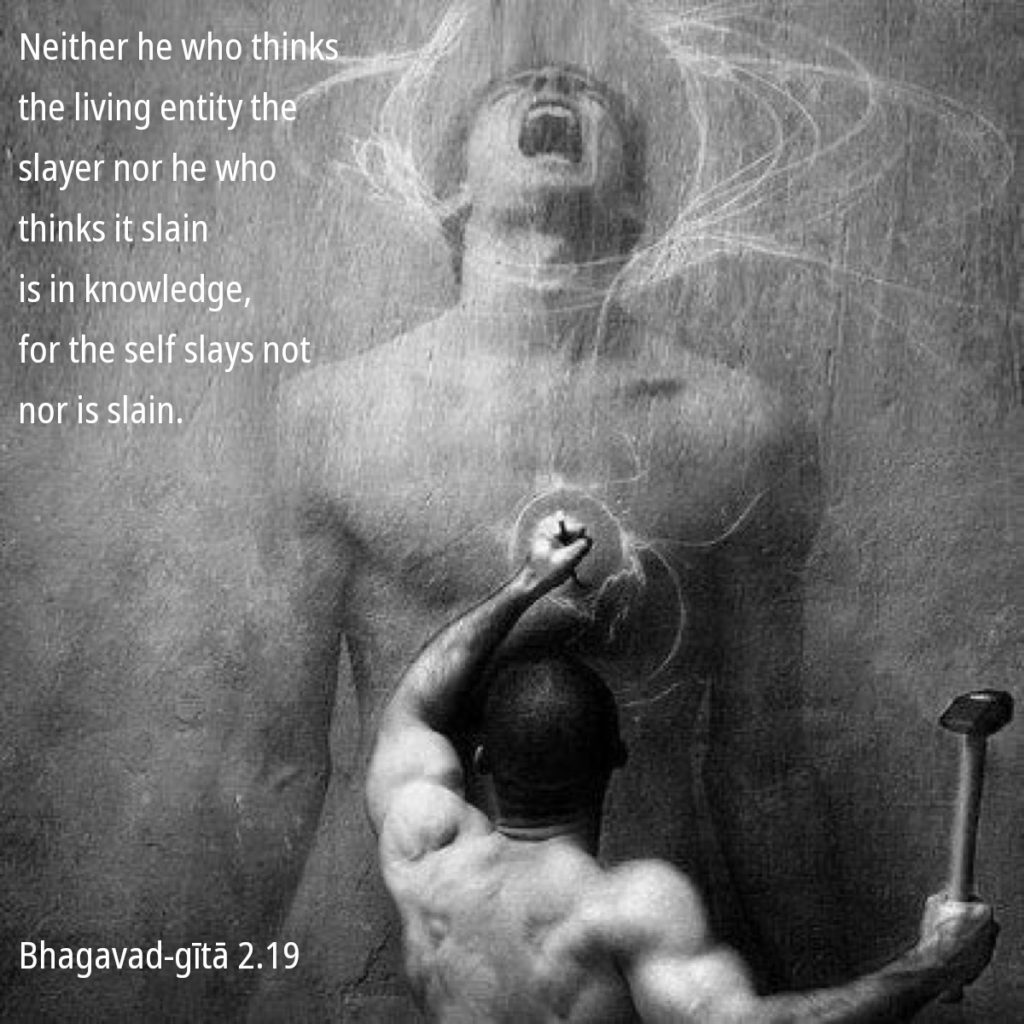य एनं वेत्ति हन्तारं यश्चैनं मन्यते हतम् |
उभौ तौ न विजानीतो नायं हन्ति न हन्यते || 19||
ya enaṁ vetti hantāraṁ yaśh chainaṁ manyate hatam
ubhau tau na vijānīto nāyaṁ hanti na hanyate
yaḥ—one who; enam—this; vetti—knows; hantāram—the slayer; yaḥ—one who; cha—and; enam—this; manyate—thinks; hatam—slain; ubhau—both; tau—they; na—not; vijānītaḥ—in knowledge; na—neither; ayam—this; hanti—slays; na—nor; hanyate—is killed
Translation:
He who thinks that Atma slays, or he who thinks that Atma is Slain, both these do not know the Truth. Atma does not slay, nor is slain.
Commentary:
1. Since Atma does not slay, it follows that Atma does not perform any action. It is actionless. It does not do anything, nor does it prompt anything to do. The sense of action and the feeling of activity belong to Buddhi only and do not touch Atma which is beyond Buddhi. He is an ignorant man who ascribes action to Atma.
2. Atma is imperishable and so it cannot be slain. It is eternal and unchanging. Therefore, the spiritual aspirant should persistently contemplate that he is the immortal Atma, the witness of the physical and subtle bodies, the ever pure and perfect.
Swami Vivekananda Says —
Any action that you do for yourself will bring its effect to bear upon you. If it is a good action, you will have to take the good effect, and if bad, you will have to take the bad effect; but any action that is not done for your own sake, whatever it be, will have no effect on you. There is to be found a very expressive sentence in our scriptures embodying this idea: “Even if he kills the whole universe (or be himself killed), he is neither the killer nor the killed, when he knows that he is not acting for himself at all.” Therefore karma-yoga teaches, “Do not give up the world; live in the world, imbibe its influences as much as you can; but if it be for your own enjoyment’s sake, work not at all.” Enjoyment should not be the goal.[Source]
Question: What is the nature of Atma?
Answer: It is free from all action. It does not slay, nor is it slain.
